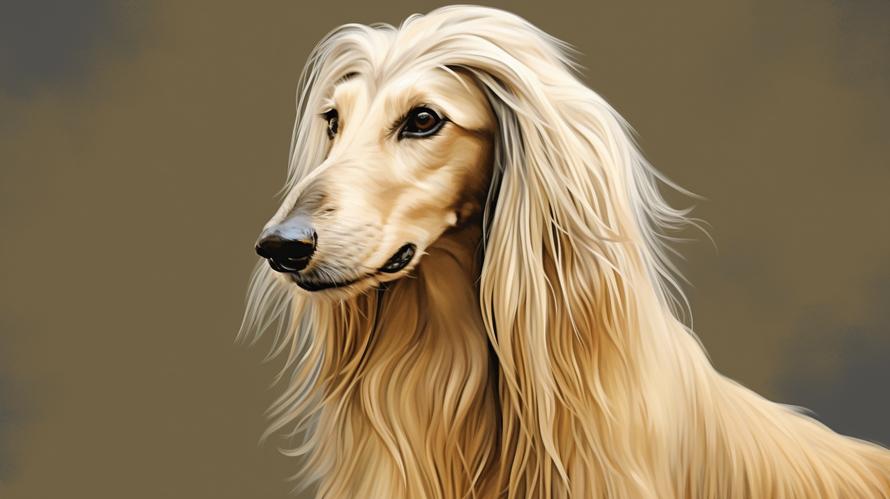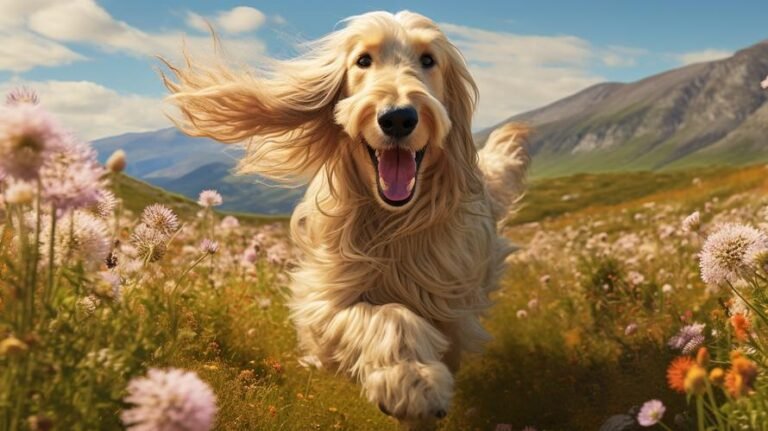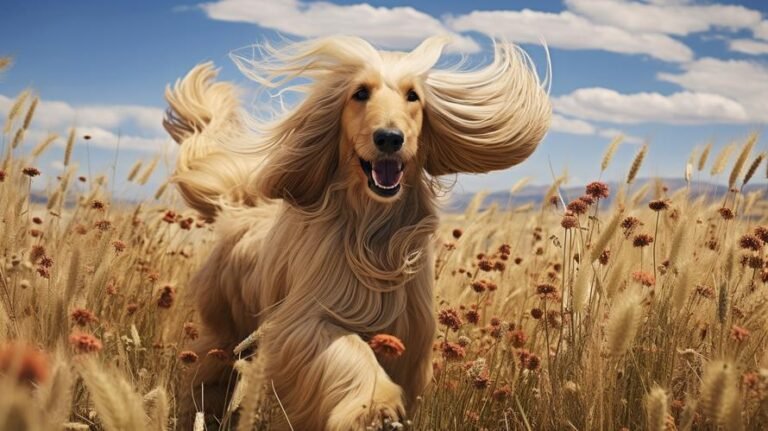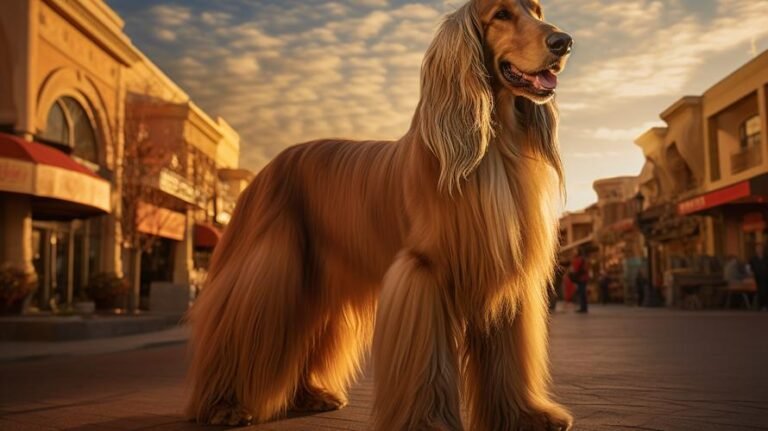Majestic and elegant, the Afghan Hound is an ancient breed that originated in Afghanistan, known for its silky fur, exotic features, and graceful poise. Often chosen for its unrivaled beauty and regal aura by dog owners, it might surprise you to discover that this seemingly delicate breed has a history of guarding livestock and assisting in hunts.
Yes, you read that right! Those long, slender limbs and that delicate demeanor have a background in guard duty and hunting! The Afghan Hound, with its quick wit and athletic capabilities, used to help protect livestock along rocky mountain passes and even participated in hunting expeditions. Now, that’s something interesting we bet you didn’t know about our Afghan Hound!
However, before you rush out to get one of these glamorous dogs thinking you’ve found the ‘model’ version of a guard dog, you might want to press pause. Despite their historical guard duties, modern Afghan Hounds have tempered their protective tendencies considerably. They are far more likely to be found lounging around on your luxurious carpeting than keeping watch for intruders.
Make no mistake! The Afghan Hound possesses many admirable qualities; however, the breed is generally not classified as a ‘guard dog’. Many factors contribute to this, primarily a shift in the way these dogs are bred and trained as well as their unique personality traits.
Why aren’t Afghan Hounds considered guard dogs?
A typical guard dog is characterized by characteristics like aggressive protectiveness, vigilant demeanor, fearless nature, and the willingness to ward off intruders. Afghan Hounds, on the other hand, display characteristics that make them apart from traditional guard dogs. Here’s why.
1. They Lack Aggression:
Afghan Hounds are a gentle breed. They are noted for their affectionate nature and easy-going attitude. Unlike other guard dogs who are naturally aggressive, these dogs are quite the opposite. They rarely show aggression and typically prefer peaceful cohabitation over violent confrontations. They are welcoming to strangers and are more likely to ignore an intruder than confront them.
2. They’re Independent:
Afghan Hounds are known for their independent, free-spirited demeanor. They are thinkers and often do what they want when they want to. This trait isn’t ideal for a guard dog, who must respond to commands promptly and be willing to protect their family or territory at a moment’s notice.
3. Lack of Trainability:
Due to their independent streak, Afghan Hounds can be challenging to train. They can be stubborn and resistant to repeated commands. This is not a trait you would want in a guard dog where training and obedience are key aspects.
4. They’re “Sight” Hounds:
This breed falls under the category of “sight” hounds, that were originally bred for their keen vision and fast running speeds to assist in hunting. Their primary hunting strategy relied on sight and speed, rather than the scent and stamina preferred in other breeds. This means they might spot an intruder, but they are less likely to take action.
Now that we understand why Afghan Hounds aren’t typically considered guard dogs, it’s essential to emphasize that every dog’s behavior can change based on individual personality, training, socialization, and environment. With the right training and socialization, an Afghan Hound could potentially take on the role of a guard dog, although the breed’s general traits make this unlikely.
Even if Afghan Hounds aren’t your ideal guard dogs, they are amazing companions and pets. They are intelligent, dignified, and naturally affectionate to their families. Their gorgeous long-haired coats and aristocratic manner make them pleasurable home companions.
If you are looking for a glamorous, good-natured, independent pet who may occasionally surprise you with flashes of their guard-dog past, then the Afghan Hound could be the perfect addition to your family. But if it’s a dedicated, trainable guard dog you’re after, you might want to consider dog breeds known for their guarding capabilities, such as German Shepherds, Rottweilers, and Dobermans.
Whatever your preference, remember that owning a dog comes with great responsibility. Ensuring your dog’s well-being and devoting time to their training and socialization is vital. Most importantly, every dog, no matter its breed or job, deserves a loving, caring home!
Whether royal in bearing or robust in nature, may you find your perfect canine companion!



